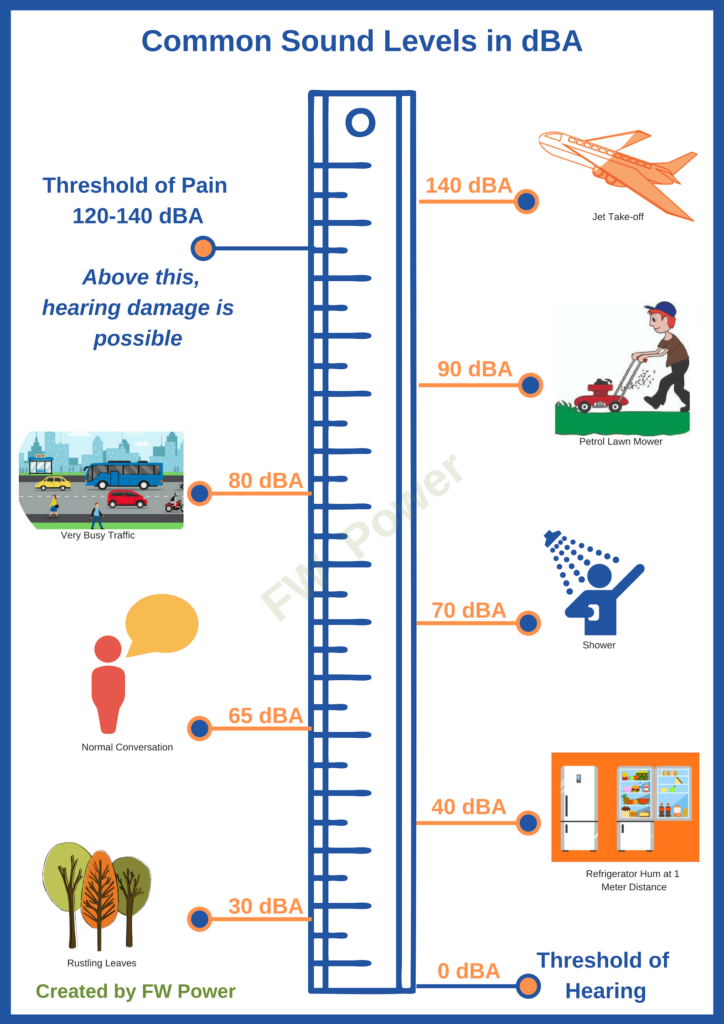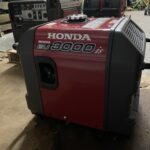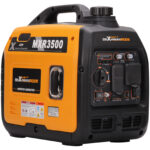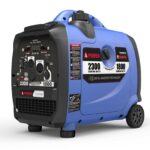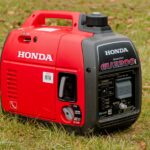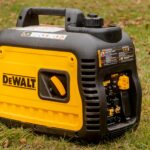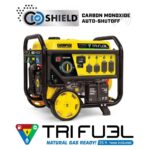If you’re looking to unlock the secret to quiet generator use, understanding generator decibel ratings is essential. Generator decibel ratings, also known as noise level ratings, indicate the sound level emitted by a generator when it is in operation. Knowing the decibel rating of a generator can help you determine the best type of generator for your needs and determine how to use it safely and quietly.
What is a Generator?
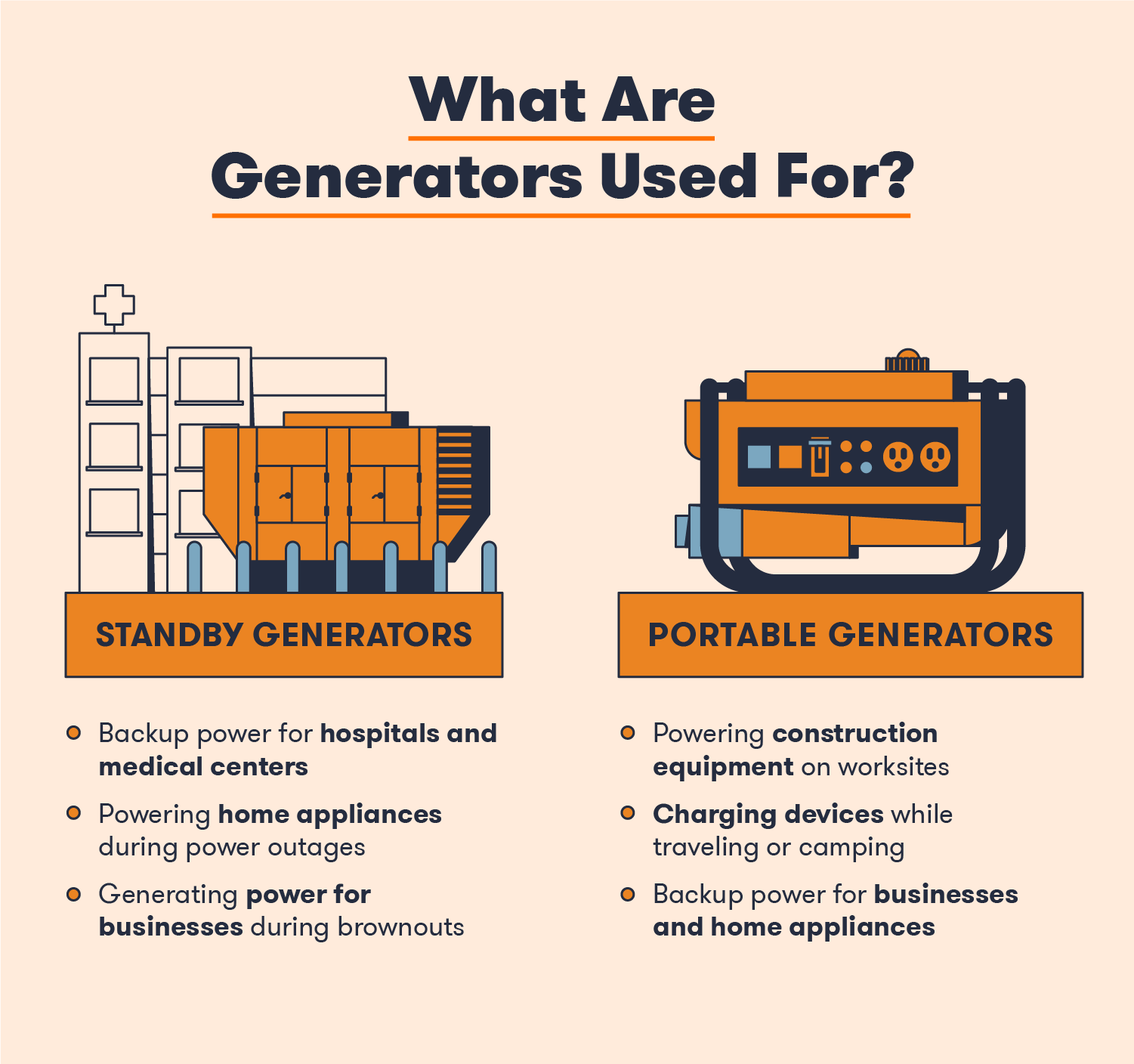
- A generator is a device that converts mechanical energy into electrical energy.
- Generators can be powered by different sources such as gasoline, diesel, natural gas, propane, water, wind or solar energy.
- Generators are used to provide power in a variety of applications such as back-up power, camping, recreational vehicles, emergency power, and home use.
- Generators come in a variety of sizes, from small portable generators to large industrial generators.
What Are Decibels?
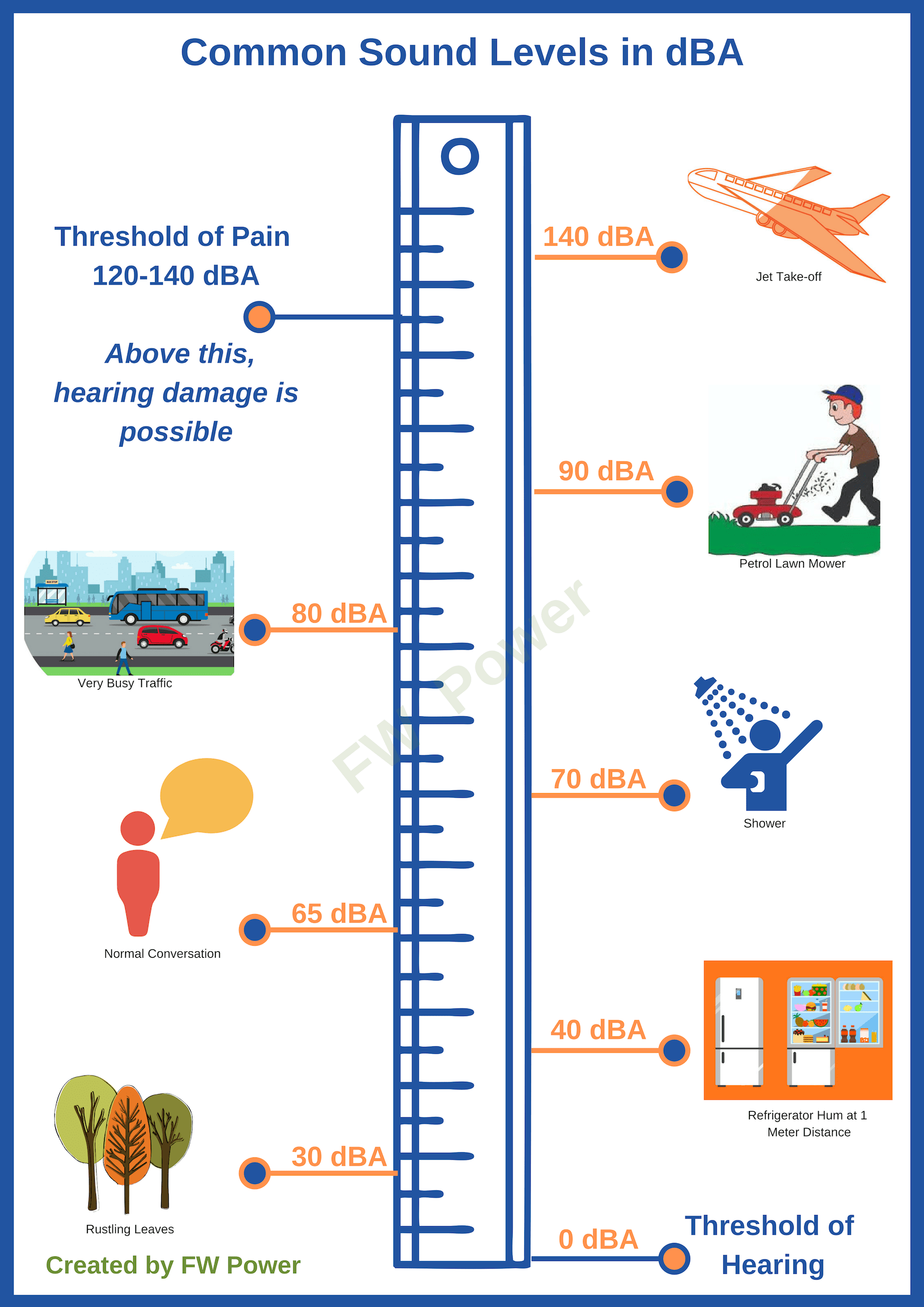
Decibels (dB) are a unit of measurement used to quantify the relative intensity of a sound. They measure the sound pressure level (SPL) of a sound and are logarithmic, meaning that a small increase in decibels corresponds to a large increase in sound intensity. The quietest sound that a normal human ear can detect is 0 dB, while a jet engine at take-off is around 140 dB.
Generator decibel ratings measure the sound pressure levels of a generator’s engine in dB. Generators are rated according to the loudness of their engine, which is usually expressed in dBA (A-weighted decibels), which is a type of decibel measurement that takes into account the sensitivity of the human ear. The quieter the generator engine, the lower its dBA rating.
How Are Generator Decibel Ratings Measured?
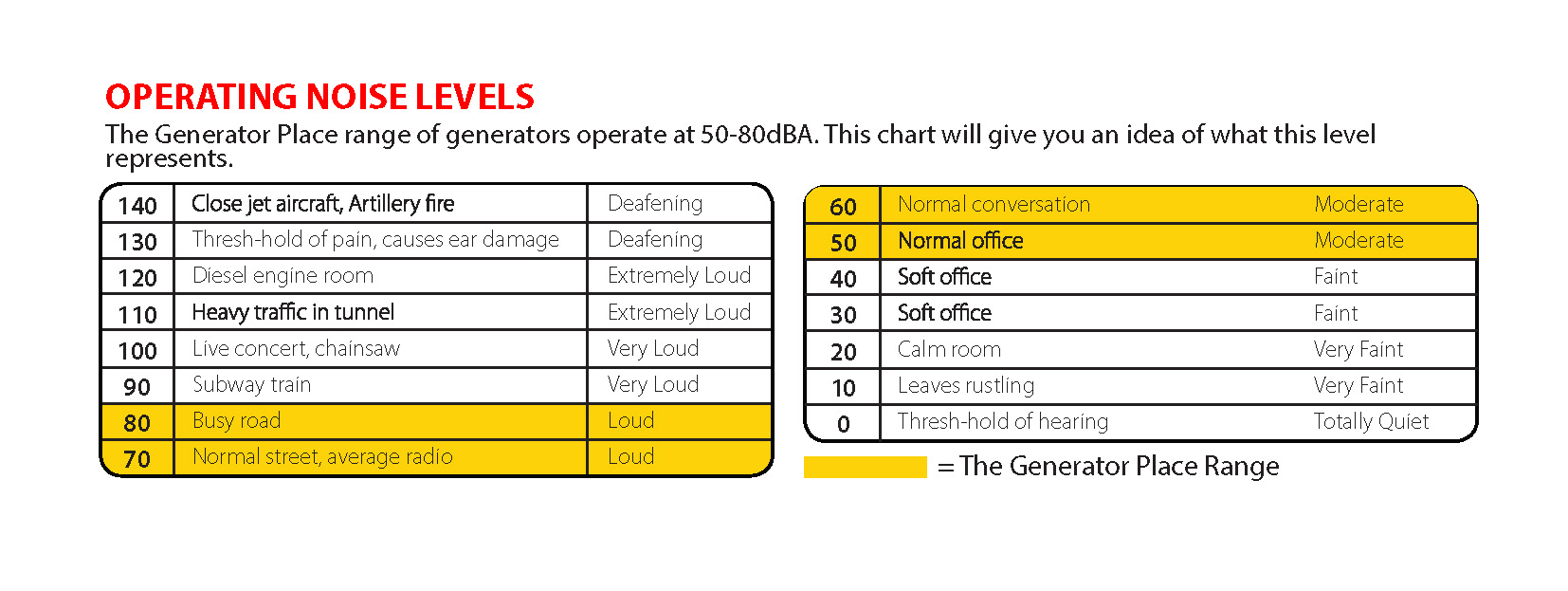
Generator decibel ratings measure the amount of noise produced by the generator when it is in operation. The decibel (dB) rating is a logarithmic unit of measure used to quantify the intensity of a sound. The higher the decibel rating, the louder the sound.
Generator decibel ratings are measured at a distance of 7 meters from the generator. It is measured on an A-weighted scale, which is the most common scale used to measure the perceived loudness of sound in the human ear. The A-weighted scale takes into account the frequency of the sound and how it is perceived by the ear.
| Decibel Rating | Perception |
|---|---|
| 0-25 dB | Inaudible |
| 26-40 dB | Barely audible |
| 41-55 dB | Quiet |
| 56-70 dB | Moderate |
| 71-85 dB | Loud |
| 86-100 dB | Very Loud |
| 101 dB and above | Extremely Loud |
For comparison, a normal conversation is usually around 60 dB, a TV or radio at a reasonable volume is around 80 dB, and a loud rock concert is around 120 dB. Generally speaking, the lower the decibel rating of a generator, the better for the environment.
Pros and Cons of Different Decibel Ratings

| Decibel Rating | Pros | Cons |
|---|---|---|
| 60 dB | Quiet operation, perfect for residential areas | Lower power output |
| 65 dB | More power output than 60 dB | Noisy operation |
| 75 dB | Highest power output | Very noisy operation |
Generators come with a variety of decibel ratings, from 60 dB to 75 dB. 60 dB is the quietest rating and 75 dB is the loudest. A 60 dB generator is perfect for residential areas, as it produces enough power while operating quietly. The downside is that it has a lower power output than other ratings. A 65 dB generator has more power output than a 60 dB generator, but its noise level is too high for residential areas. Finally, a 75 dB generator has the highest power output, but it is very noisy and should not be used in residential areas.
Factors That Affect Generator Decibel Levels
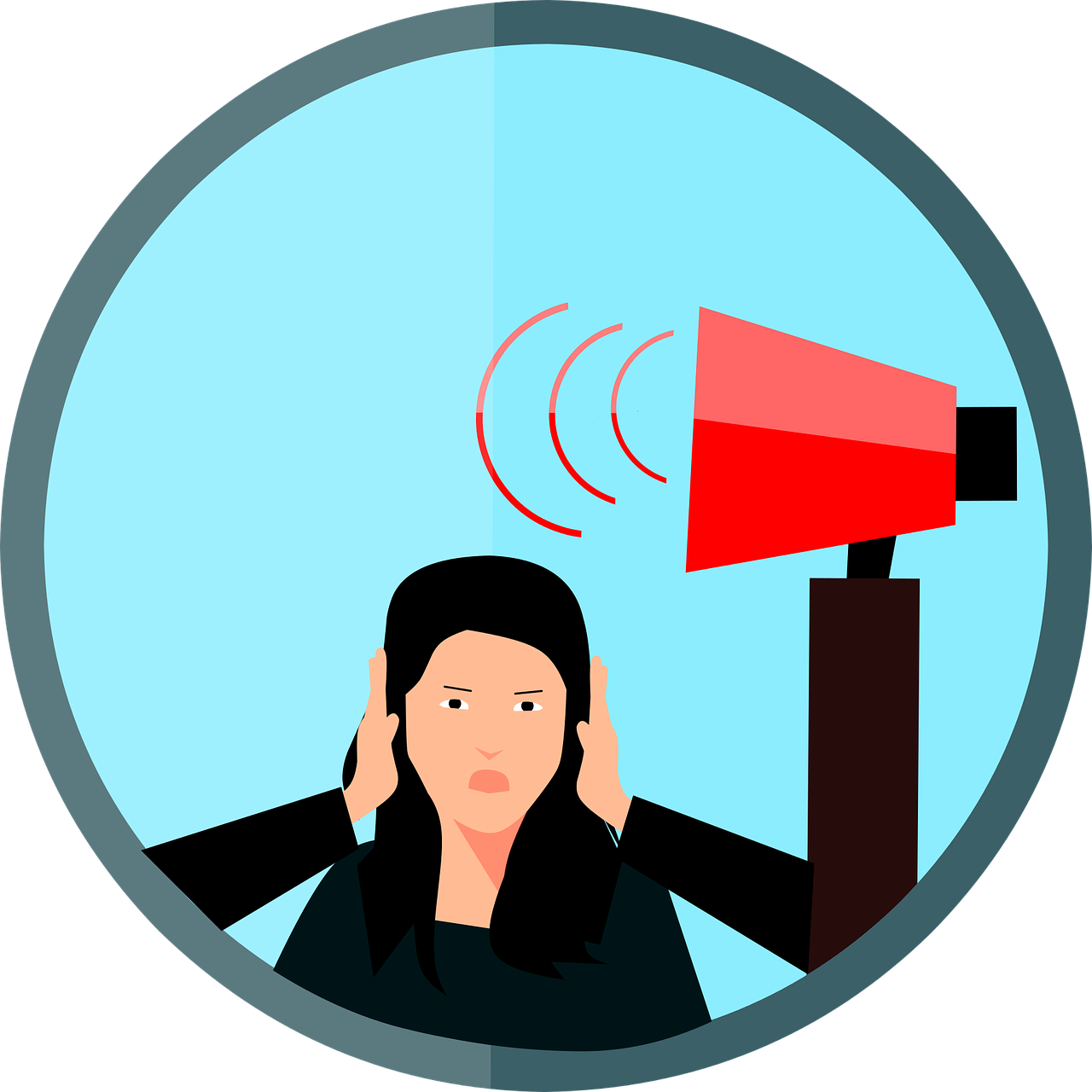
- Size and Type of Generator: Generators with larger engines and higher wattage ratings will be louder than smaller, lower wattage generators.
- Engine Type: Generators with two-stroke engines will usually be louder than those with four-stroke engines.
- Load Capacity: The more power drawn from the generator, the louder it will be.
- Soundproofing: If the generator is housed in an enclosure or has soundproofing materials, it will be quieter than if it is left open.
- Maintenance: A generator that is properly maintained will be quieter than one that is not.
- Air Filter: A clogged or dirty air filter can increase the sound levels of a generator.
- Weather Conditions: Wind, rain, and other weather conditions can affect the sound levels of a generator.
Ways to Reduce Generator Noise
One of the most effective ways to reduce generator noise is to install soundproofing materials such as acoustic foam, sound blankets, and soundproofing panels. Acoustic foam is designed to absorb sound waves, while sound blankets and panels act as a barrier to reduce noise transmission. Other ways to reduce generator noise include installing noise-absorbing baffles, using noise-reducing exhaust systems, and adding noise-cancelling mufflers. Additionally, positioning the generator away from windows and doors, and using rubber or foam pads under the generator can also help reduce noise levels.
Selecting the Right Generator for Your Needs
When selecting a generator, it is important to consider the decibel rating. Decibel ratings measure the amount of noise a generator emits, and higher decibel ratings mean louder noise. For residential use, look for generators with lower decibel ratings, as these will produce less noise. For outdoor use, generators with higher decibel ratings will be more suitable as they will be able to operate in louder environments. Consider the environment in which you will be using the generator and select one with a decibel rating that is suitable for that environment.
In addition to decibel rating, consider the power output of the generator. This will help you determine what kind of appliances the generator can power and how many. A generator with higher power output will be able to power more powerful appliances, such as an air conditioner, and more of them. Consider how many appliances you will be using at once and select a generator with a power output that can handle them.
It is also important to consider the size and weight of the generator. A larger generator will be able to run for longer periods of time, but it will also be heavier and more difficult to move. If you need to move the generator frequently, then select one that is smaller and lighter.
Finally, consider the fuel type of the generator. Some generators run on gasoline, while others run on diesel or propane. Select the fuel type that is most convenient for you and will be able to provide the power you need.
Take the time to research and compare different generators to find the one that best fits your needs. Consider the decibel rating, power output, size, weight, and fuel type to ensure that you select the right generator for your needs.
Frequently Asked Questions
What is the Noise Level of a Champion Generator?
Champion generators have a noise rating of 68 dB, which is slightly louder than the average conversation. This is considered to be a quieter option compared to other portable generators, making it ideal for use in residential or recreational areas.
How do I compare generator decibel ratings?
Decibel (dB) ratings measure the noise levels produced by a generator. To compare generator decibel ratings, first determine the type of noise measurement you’ll use. Noise measurements can be taken from an idle generator, generator under load, or its sound pressure level. Then, use a sound level meter or decibel meter to measure the noise levels produced by the generator. Compare the dB rating of each generator to decide which one is quieter. It’s important to understand that lower dB ratings indicate quieter noise levels.
What is the secret to quiet generator use?
Maintaining a generator correctly is the key to quiet operation. Regularly check and change engine oil, replace the air filter, and check the spark plugs. Additionally, using an acoustic enclosure, exhaust silencer and vibration dampeners can help to reduce the decibel rating of the generator.
How do I understand generator decibel ratings?
Decibel (dB) ratings are used to measure the sound level of a generator. The higher the decibel rating, the louder the sound. Generally, a rating of 65 dB or lower is considered quiet, while a rating of 85 dB or higher is considered very loud. A good rule of thumb is that if you can hear the generator from more than 15 feet away, it is too loud and may be a nuisance to your neighbors.
How can I reduce generator noise levels?
The most effective way to reduce generator noise levels is to install a soundproof enclosure around the generator. This enclosure should be constructed from a material with good sound-dampening properties, such as plywood or fiberglass. Additionally, installing acoustic foam or a layer of insulation inside the enclosure can further reduce noise levels. Finally, utilizing a muffler can also help to reduce noise levels.
Conclusion
Generator decibel ratings are an important factor to consider when selecting a generator. Generators are available with various decibel ratings, but it is recommended to select a generator with a lower decibel rating to reduce noise pollution. Generator soundproofing can also be employed to reduce noise levels. With the proper selection of a generator and soundproofing, generator use can be made more quiet and comfortable.
